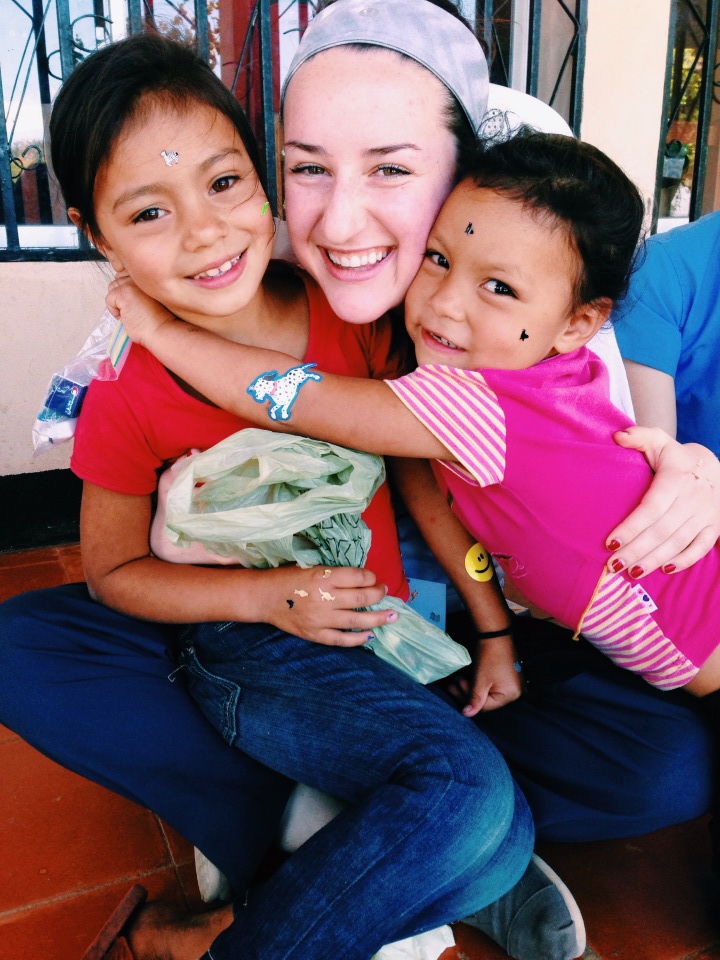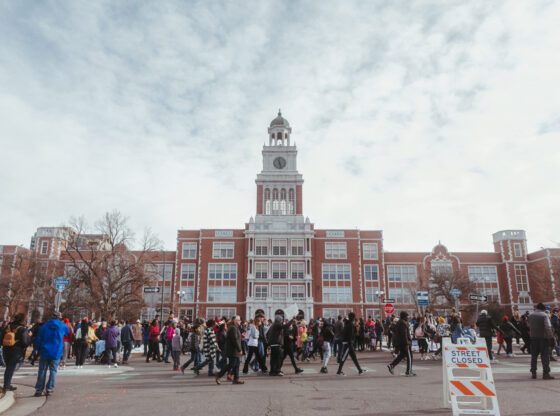Talent, knowledge and a deep passion for helping those around the world in need—these are what members of the DU chapter of Global Brigades brought to their service trip to Nicaragua over spring break. Leaving right after finals and returning in the early morning hours of the first day of spring quarter, 33 people from the DU Medical Brigade, along with 12 from the Public Health Brigade, spent their break giving medical assistance to impoverished communities around Esteli, Nicaragua. The Medical and Public Health Brigades are both factions of Global Brigade, a national organization that encompasses numerous colleges.
The Medical Brigadiers’ jobs in the villages varied—while many filled prescriptions, others worked in triage diagnosing patients, some shadowed physicians who accompanied the group and others worked educating people on healthy living. Overall, the group helped about 300 patients per day, some of whom walked miles from surrounding villages and stood in line for hours for assistance. They worked 10-12 hour days and always stayed until the very last patient was taken care of, according to Colin Jorgensen, vice president of the organization.
For Jorgensen, a senior biology and music major from Greeley, Colo., the decision to join last year’s Medical Brigade trip to Honduras and again this year to Nicaragua was an easy one.
Jorgensen emphasized the Brigadiers’ passion to spend seven days making a difference and empowering communities, not only in providing them with short-term medical assistance, but also aiding in developing the tools and knowledge to become more self-sustaining and develop their communities.
“You could spend seven days, seven days doing something for yourself or you could spend six days working alongside some of the best friends you have here at DU and actually making a difference. That was the only convincing I really needed,” said Jorgensen.
Dan Johnson, a sophomore biology major from Lakewood, Colo., worked three jobs over the past summer raising enough money to go on the trip this year.
“I felt like I really had to do something to give back to the community and this seemed like a great opportunity to do that … It was an absolute blast on top of that,” said Johnson.
The local Nicaraguans’ positive outlooks, despite their impoverished and difficult situations, deeply resonated with the Brigadiers.
“The little things we complain about like living in the dorms or having 8 a.m.s are nothing compared to the problems these other places have that don’t have floors, living in a single shack with a family of six people,” said Johnson.
Students observed that community members in the Nicaraguan towns they visited around Miraflor had strong family values and were proud of the people who surrounded them, according to Jorgensen and Johnson.
For Jorgensen, the most poignant moment occurred when he met a 65-year-old man who had walked four miles pushing his 99-year-old mother in a wheelchair. The man claimed to have hypertension, which proved to be a bit of an understatement. By the scales of blood pressure in the United States, this man’s vital signs were through the roof, according to Jorgensen.
The 65-year-old man and his mother, Jorgensen learned, were the healthiest of the family, as the man’s father was too sick to even make the trip.
Even through all of the hardship the local Nicaraguans were fighting, they still wanted to get to know all of the Brigadiers helping them and were excited to learn about them, according to Jorgensen.
Jorgensen commented, “They were so happy we were there to give that assistance but even if we hadn’t gone, they would still be happy.”
The attitudes of the Nicaraguan community members caused a shift in the life outlook of many Brigadiers. Many of them developed friendships and connections with their patients despite the rushed atmosphere of treating so many people in a day.
“Our Brigadiers come back with a sense of international community view that no one is as different as you think they are even if it’s 5,000 miles away and [speak] a different language than you,” according to Jorgensen.
Although the students brought many contributions and prior skills to the communities they visited, they left with many more benefits relating to their education and global awareness. According to Jorgensen, the members take a pre and post-trip survey. Every student’s Spanish competency level increased significantly, as well as education in health care in underdeveloped countries and comfort in new cultures and medical fields.
Many students’ career plans were influenced by the Brigade; many of them came back from the trip with a clear intent to apply for medical school or work in relief with different countries when they graduate from DU, Jorgensen commented.
“It’s not a class but look at the education they’re getting,” said Jorgensen. “When our students walk out of this they come back [to DU] with so much more personal experience … It really does prepare you for what you want to do in the future.”











